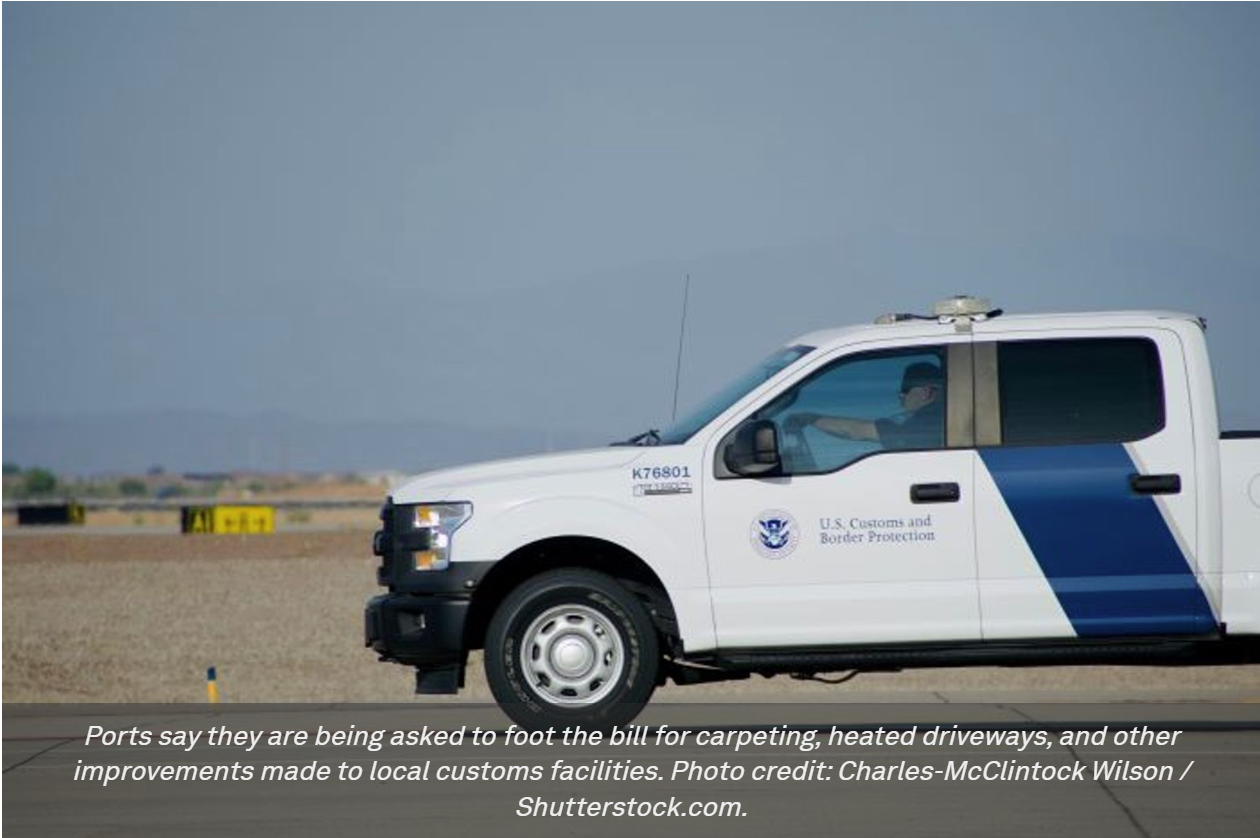
US ports and shippers are asking Congress to rein in the costs of customs inspections at local ports of entry, throwing their support behind legislation that would require processing fees to cover expenses related to inspection facilities.
In a letter sent last week to six of the bill's original co-sponsors in the House of Representatives, the American Association of Port Authorities (AAPA) and 26 other groups asked for renewed support of the Customs and Border Protection (CBP) Space Act (Securing Ports and America's Commerce and Economy). First introduced last year, two of the original co-sponsors, Florida Rep. Laurel Lee and Washington Rep. Marie Gluesenkamp, plan to bring the bill before Congress again this term.
The CBP Space Act would require that the merchandise processing fee, which is based on the value of goods imported and can range between $32 and $634, would also cover any capital costs for inspection and other facilities for US customs officers at ports of entry. The fee currently just covers the salaries and other expenses for maintaining officers in the field.
The AAPA and other signatories said in the letter that local customs offices have been asking ports to pay for“carpeting, heated driveways, unused computers, TVs, office renovations, and other capital improvements unrelated to cargo and passenger inspections.”
“Many public port authorities are run by local or state governments with small, fixed budgets and limited discretionary spending,”the letter said.“Yet CBP has presented them with bills that often total hundreds of thousands of dollars, and in some cases, exceed $1 million.”
It said CBP threatens to slow walk inspections or reduce local staff if the bills are not paid. The CBP Space Act would, if passed, directly prohibit the agency from asking ports to fund“administrative, training, or recreation facilities”at a port of entry.
The bill would also require the CBP to provide an annual report to Congress on how the agency is spending the merchandise processing fee and require CBP to work with the Treasury Department on setting a fee that would cover capital costs for local facilities.
Carlos Buqueras, the executive director of SeaPort Manatee along Florida's Gulf Coast, said in the letter that it's Congress' responsibility to adequately fund CBP's mission and that the legislation“puts Congress'long-held directives into law … [and] allows CBP officers to restore their full focus to the nation's economy and security.”

